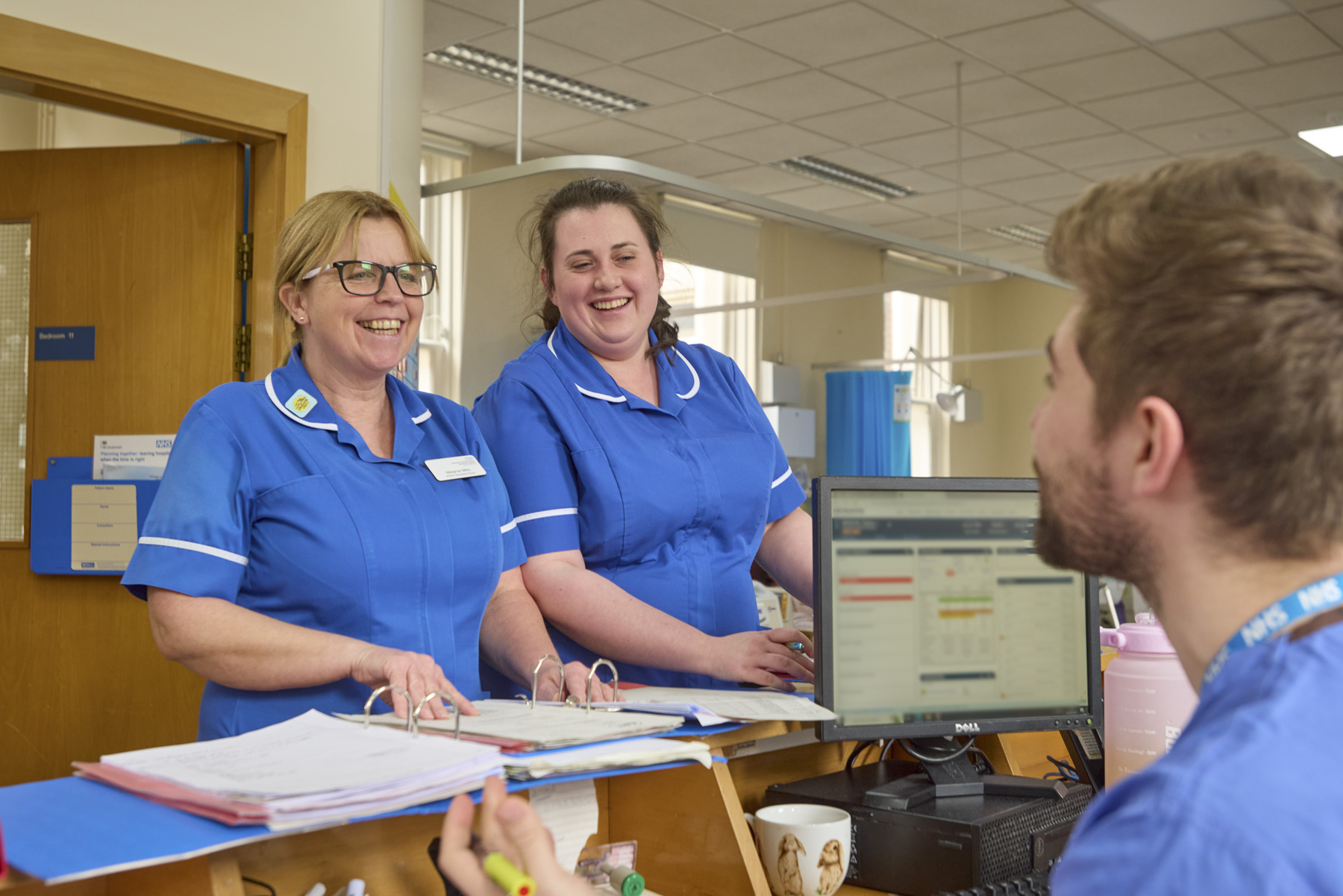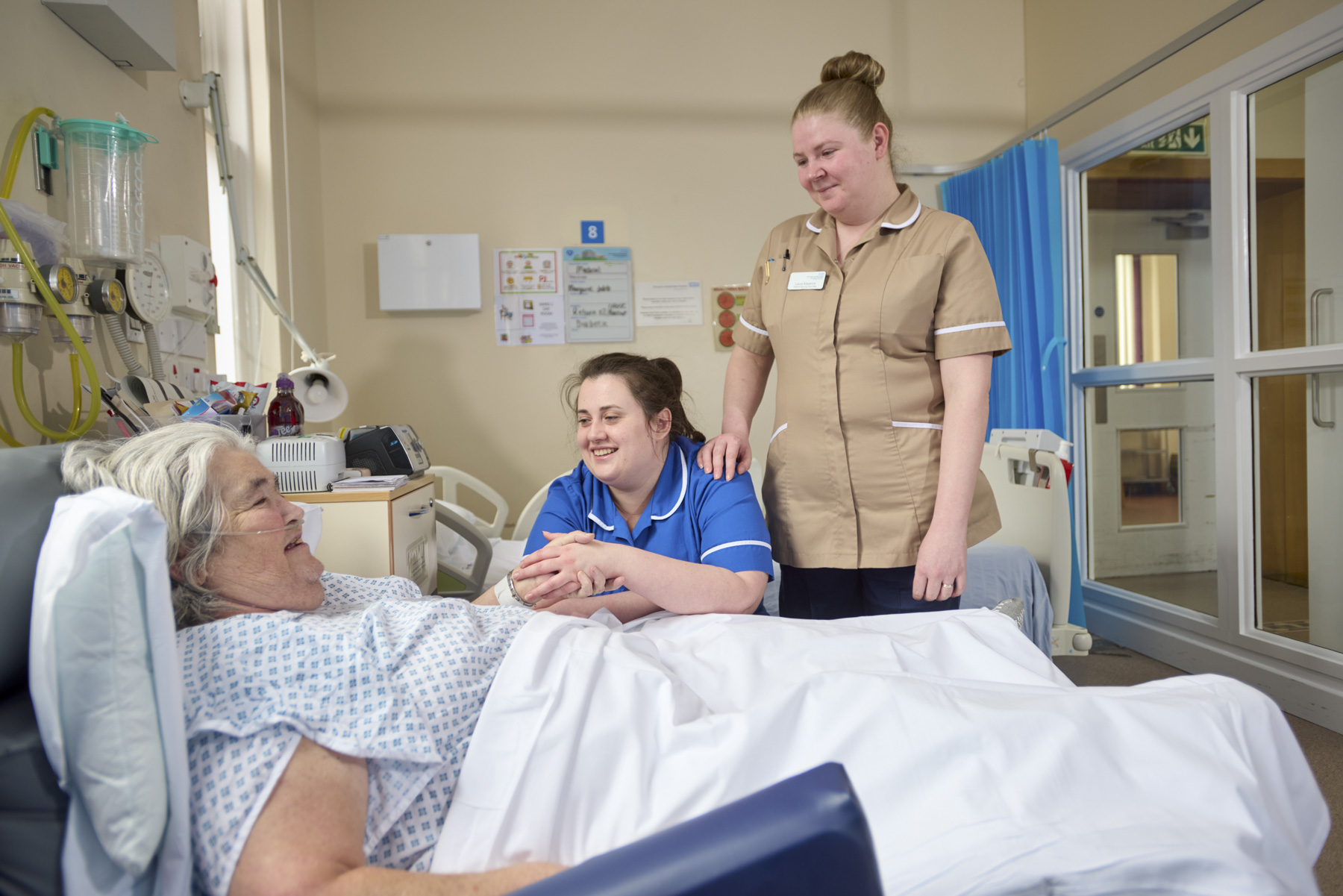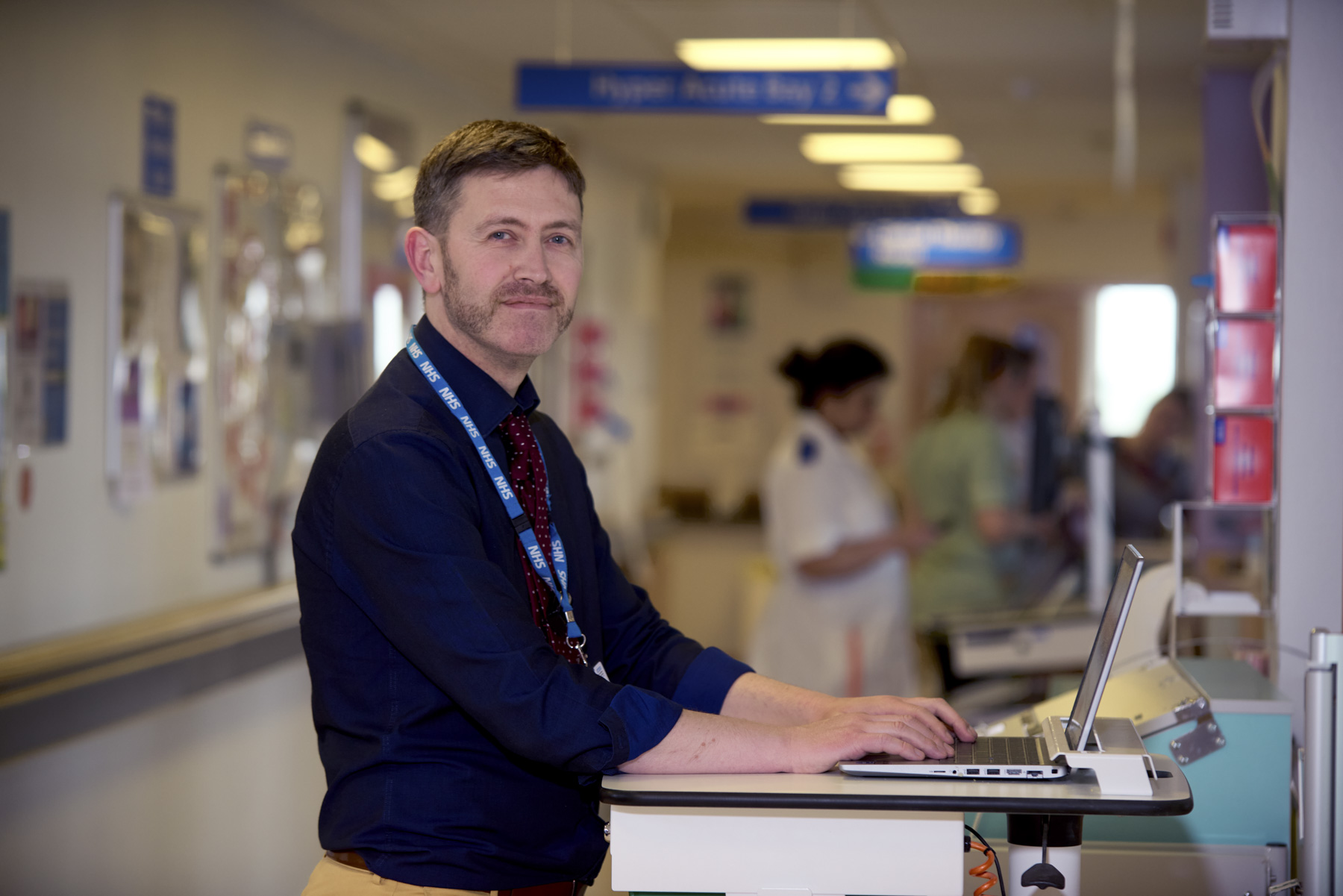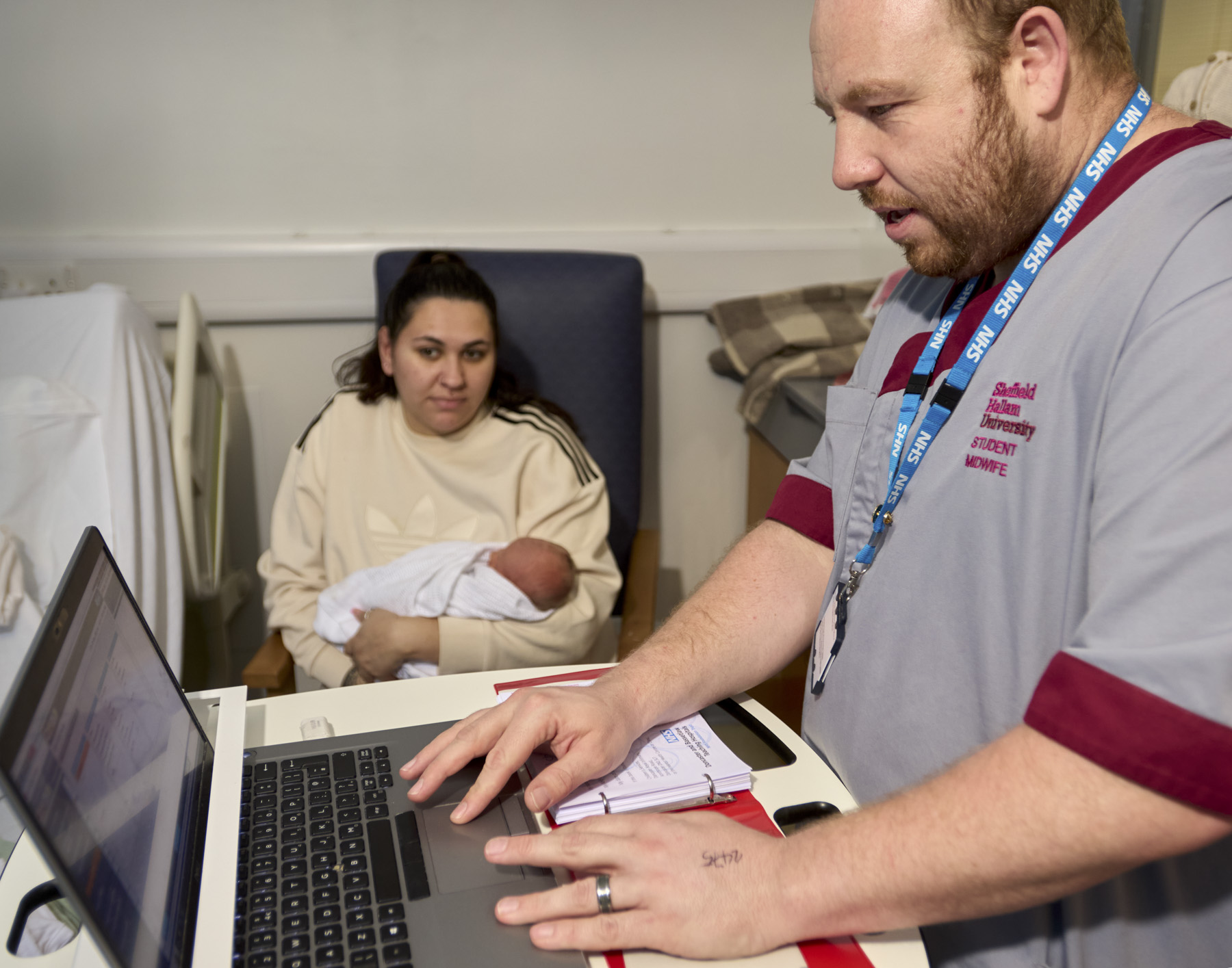If you are visiting the UK, or have been living outside the UK, and you require NHS treatment in our hospitals, you may have to pay for your treatment. This is regardless of whether you are a British Citizen or have lived or worked here in the past.
This page gives more details about treatment for overseas visitors.
On this page:
- Our approach
- Establishing residency
- Services Exempt from Charging
- Care of overseas visitors
- Immediate necessary treatment
- Urgent treatment
- Non-urgent treatment
- Charges
- Tariff and payments
- Deceased patients
- Recovery of income
- Complaints
- More information
If you need this page in another language, please head to: https://translate.google.co.uk. For more accessibility options and information, please visit: https://www.dbth.nhs.uk/a-z/accessibility/
Our approach
The Department of Health regulations require all NHS Trusts in England to identify and charge overseas patients for hospital treatment they receive. This is a legal requirement.
NHS services are provided free of charge to people who are deemed to be “ordinarily resident”.
Ordinary residence is defined under the Charging Regulations as when a person is:
“Living lawfully in the United Kingdom voluntarily and for settled purposes, as part of the regular order of their life, for the time being”
A person is not ordinarily resident just because they are British; hold a British passport, are registered with a GP, have an NHS number or have paid tax into the UK revenue system at any point.
In order to ascertain a person’s eligibility, the Trust applies baseline questions to all patients, without discrimination. Questions may include, but are not limited to:
“Where have you lived in the last 12 months?”
Evidence of identity, insurance or residence may be requested by the Overseas Visitor Team or other appointed Trust staff.
Anybody who can demonstrate that they lawfully reside in the UK is unlikely to incur treatment charges.
The Trust works closely with the Home Office in order to verify information provided.
NHS Hospital treatment is not free for everyone. Anyone of any nationality/citizenship who is not ordinarily resident in the UK at the time of treatment may be classed as an ‘Overseas Visitor’. This means that where there is no exemption, they may be charged for
NHS treatment they receive at Doncaster & Bassetlaw Teaching Hospital NHS Foundation Trust, and the Trust must charge the person liable and recover the costs from them.

Establishing residency
If you come to one of our hospitals for treatment, you may be asked and provide documents to prove that you are ordinarily resident in the UK. The list of documents can be found here:
If you cannot provide the documents, you may have to pay an estimated upfront charge for the cost of your treatment before you continue with your treatment.
A person does not automatically qualify to receive free treatment on the NHS simply by:
- Holding a British passport or have British nationality
- Being registered with a GP
- Having an NHS number
- Owning property in the UK
- Have a MATB1
- Having paid (or are currently paying) National insurance contributions and taxes in this country
- Having pre-settled/settled status
There are many factors which are taken into account to prove your entitlement, including proof on being legally/lawfully in the UK and proof of being in the UK with a sufficient degree of continuity.
The Trust may also ask for you to provide documentary evidence to support your claim for free treatment such as (but not limited to) a copy of your passport, tenancy agreement, utility bill, pre-settled status, copy of visa etc.

Services Exempt from Charging
Some NHS services are free to everyone – This includes family planning services and the treatment of certain infectious diseases. (Please be aware that Assisted Conception Services are not included as part of family planning and are subject to full charges for those patients who have paid the Immigration Health Surcharge).
Treatment within the Emergency Department (A&E) is free, but if you are visiting from any of the European Countries you will be asked to produce your European Health Insurance Card (EHIC) or a Provisional Replacement Certificate (PRC), and provide a copy of your passport or ID Card. These documents are issued through your own State healthcare system and they allow you to access Emergency NHS treatment without charge.
If you do not have either of these documents, at the time of accessing medical care, and your treatment plan requires you to be admitted as an inpatient, or given an outpatient appointment you will be expected to pay up-front prior to your treatment plan continuing dependant on your clinical need. If you do not pay, you may be refused future treatment, again based on your clinical need.
*Even if your clinical need is that of an urgent nature and cannot wait until you return home or if you have no ability to pay, an invoice for the charge must still be generated.
The following services are free at the point of use for all patients. A charge cannot be made or recovered from any patients for:
- Accident and Emergency (A&E) services, this includes all A&E services provided at an NHS hospital, e.g. those provided at walk-in centres or urgent healthcare centres. This does not include those emergency services provided after the overseas visitor has been accepted as an inpatient, or at a follow-up outpatient appointment, for which charges must be levied unless the overseas visitor is exempt from charge in their own right.
- Services provided outside an NHS hospital, unless the staff providing the services are employed by, or working under the direction of, an NHS hospital.
- Family planning services (this does not include termination of established pregnancy.
- Diagnosis and treatment of specified infectious diseases (Diagnosis remains exempt even if the outcome is negative).
- Diagnosis and treatment of sexually transmitted infections.
- Treatment required for a physical or mental condition caused by: Torture, female genital mutilation, domestic violence, sexual violence.
Except where the overseas visitor has travelled to the UK for the purpose of seeking that treatment.

Care of overseas visitors
The Charging Regulations place a legal obligation on the Trust to make and recover charges for NHS treatment.
- The Trust will ensure that treatment which is immediately necessary is provided to any patient regardless of chargeable status. Failure to provide immediately necessary treatment may be deemed unlawful under the Human Rights Act 1998
- Urgent treatment will be provided to any patient, even if deposits have not been secured
- Non-urgent or elective treatment will not be provided unless the estimated full charge is received in advance of treatment
Immediate necessary treatment
Immediately necessary treatment is that which a patient needs:
- to save their life, or
- to prevent a condition from becoming immediately life-threatening, or
- promptly to prevent permanent serious damage from occurring
This will always be provided irrespective of whether or not the patient has been informed of, or agreed to pay, charges. Also it will not be delayed or withheld to establish the patient’s chargeable status or to seek payment.
All maternity services, including routine antenatal treatment, are treated as being immediately necessary. Clinicians and other Trust staff will be especially careful to inform pregnant patients that further maternity care will not be withheld, regardless of their ability to pay.

Urgent treatment
Urgent treatment is that which clinicians do not consider immediately necessary, but which nevertheless cannot wait until the person can be reasonably expected to return home.
The Trust does make every effort to secure payment in the time before treatment is scheduled but if that proves unsuccessful the treatment will not be delayed or withheld for the purposes of securing payment.
While the urgency of treatment is a matter of clinical judgement, this does not mean that the treatment should be unlimited; there may be some room for discretion about the extent of treatment and the time at which it is given.
Non-urgent treatment
Non-urgent treatment is routine elective treatment that could wait until the patient can return home.
The Trust will not provide non-urgent treatment unless the patient pays the full estimated cost of the treatment in advance. However, in order to decide if a patient’s need for NHS hospital treatment is urgent or can safely await their return home, clinicians will need to know when a patient can reasonably be expected to return home. The decision can be made on the basis of this information.
However, the decision will be reassessed if the patient informs the Trust that their return date has been postponed for valid reasons or if their medical condition unexpectedly changes.
Charges
If the Trust is satisfied that the patient is a chargeable overseas visitor, the Trust must recover costs via the relevant charging route for the NHS services provided.
EEA members holding a valid EHIC issued from their permanent home state must present their EHIC or PRC on presentation at the Trust to prove eligibility to access free NHS treatment. Further information can be found here.
If there are any doubts over the validity of exemption for a patient the patient will be liable to pay charges for their treatment.
Overseas visitors with travel insurance will be required to pay for their treatment and then claim back from their insurer on their return home.
Treatment is not made free of charge by virtue of being provided on an immediately necessary or urgent basis. Charges found to apply cannot be waived. However, any patient undergoing immediately necessary treatment will be reassured that this will not be withheld or withdrawn in the event of the patient being unable to pay.

Tariff and payments
Charges for treatment are taken from the national NHS Tariff.
When a patient pays the upfront estimated charge for their treatment, following discharge the episode of care is then recalculated to show the true cost of the treatment which has been provided. The estimated cost tariff originates from the average cost of that particular treatment pathway.
This may result in a credit back to the patient, or may show that there is an additional amount to be added onto the estimated cost.
Invoices relating to overseas patients have immediate payment terms. Deposits may be requested.
Deceased patients
Where a patient dies without making or completing a payment to the Trust the debt then becomes recoverable from the deceased estate.
Recovery of income
Reasonable measures are taken to pursue any amounts owing to the Trust and international debt recovery agencies will be employed where necessary.
Patients should be aware that under immigration rules 320, 321, 321A and 322, a person with outstanding debts of more than £500 for a period of more than two months to the NHS may be denied a further immigration application to enter or remain in the UK.
In the absence of prompt, full settlement or a reasonable repayment schedule, non-medical personal information may be passed via the Department of Health to the Home Office for this purpose.
The information will remain active for the purpose of the above rules until the debt is settled and a record of the settled debt will also be retained, both subject to the normal retention periods.

Complaints
If a patient wishes to raise a formal complaint, they have the right to address. They should follow the Trust complaints procedure.
More information
More information can be found within the Trust Corporate Policy.
If you have any concerns or need more information, please contact the Overseas Patients Team on 01302 642557 or email us at dbth.osvpatientsteam@nhs.net we are happy to help or give advice.
Office opening hours are 8.30am to 4.30pm Monday- Friday. There is also an answer machine in situ which is monitored regularly.
Content out of date? Information wrong or not clear enough? Report this page.

